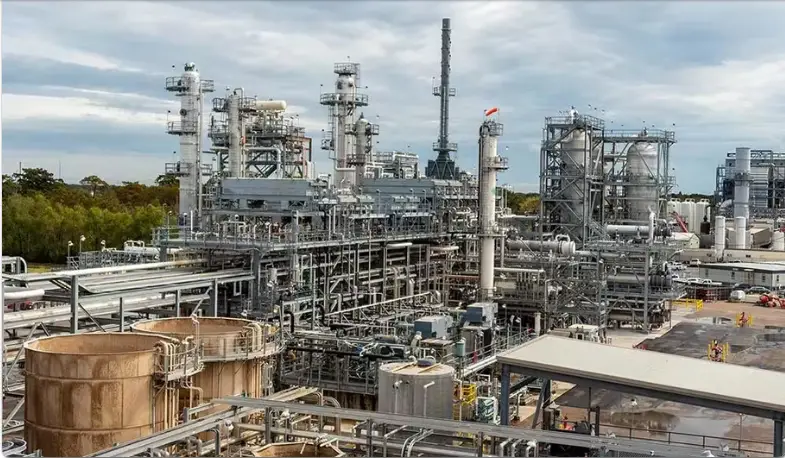Construction on the DGD Grassroots diesel plant in Texas is underway and has reached a major milestone of over 1 million field construction hours worked. This plant is located about 90 miles East of Houston and it will be the third renewable diesel facility to be developed by Diamond Green Diesel LLC (DGD); a joint venture between Darling Ingredients Inc. and Valero. Construction costs for the project are estimated at US$ 1.45bn and this will be shared equally between both joint venture companies.
DGD’s first and second production trains are located at the Norco Diesel facility in Louisiana, which produces Honeywell Green Diesel; a renewable diesel made by converting inedible oils and other waste feedstocks into a chemical identical to petroleum-based diesel. DGD intends to expand its footprint and produce this renewable diesel at the new DGD Grassroots diesel plant in Texas.
Also Read North Dakota Davis Refinery in Belfield to begin construction next year
Production capacity of the DGD Grassroots diesel plant
The Norco LA facility was expanded last year to increase its annual diesel production capacity from 290 million gallons to 400 million gallons, and now with the construction of the new DGD Grassroots diesel plant at Port Arthur, the joint venture intends to increase its total renewable diesel and renewable naphtha production to 1.2 billion gal/year and 50 million gal/year respectively.
This new DGD Grassroots diesel plant, which was approved last January by the boards of directors from both joint venture companies, is expected to be completed and become fully operational by the second half of 2023. The diesel plant will produce Honeywell Green diesel, which can be used as a drop-in replacement for diesel-powered vehicles, without the need for any engine modifications. In addition, it offers an 80% lifecycle reduction in greenhouse gas (GHG) emissions, in comparison to conventional petroleum-based diesel.
Burns & McDonnell are the contractors working on the DGD Grassroots diesel plant and they are also involved in coordinating the ISBL and OSBL scopes of work for the project. The joint team will deliver a wide scope of engineer-procure-construct (EPC) services including core renewable diesel processing units, feedstock, and product tankage and piping, as well as support utility infrastructure.
The work also includes an amine regeneration and a sour water stripper unit, and electrical infrastructure scopes. This diesel plant upon completion will ultimately become the largest renewable diesel train in the U.S.

Leave a Reply